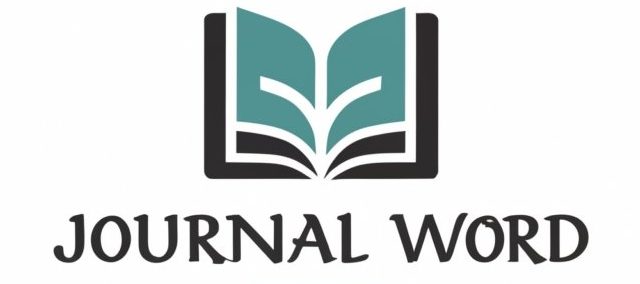Gap years used to be something mostly college students took, but today, professionals across all industries are embracing time off. The reasons? Avoiding burnout, exploring new opportunities, or simply taking time to gain life experience before diving deeper into their careers.
How a Break Can Transform Your Career Path
It may seem counterintuitive, but stepping away from work temporarily can actually accelerate career growth. Time off provides clarity, new perspectives, and skills that formal education or routine work rarely offer.
Understanding the Gap Year
What a Gap Year Really Means
A gap year is a structured break from your normal educational or professional routine. It can last from a few months to a full year, but the focus is on growth, learning, and exploration.
Different Types of Gap Years
Not all gap years are created equal. Some people travel, volunteer, work abroad, or pursue internships in new fields.
Travel, Volunteering, Internships, and Learning
Travel broadens horizons, volunteering builds empathy, internships offer hands-on experience, and learning new skills boosts your resume.
Why Professionals Are Taking Gap Years
Avoiding Burnout
High-pressure careers can drain energy quickly. A gap year is like hitting the reset button—giving your mind and body a chance to recharge.
Career Exploration
Stuck in a job you’re unsure about? Gap years provide the space to explore new paths without long-term commitment.
Gaining Life Experience
Travel, volunteering, or immersive programs cultivate maturity, self-awareness, and a broader understanding of the world.
Building Soft Skills
Critical thinking, communication, leadership, and adaptability are often honed during gap year experiences—skills highly valued by employers.
Real-Life Gap Year Stories
From Intern to Entrepreneur
One professional spent a year interning at startups abroad, learned essential business skills, and returned to launch their own company.
The Volunteering Experience That Changed Everything
Volunteering with an NGO inspired someone to shift from corporate work to social impact careers—proof that purpose often guides career decisions.
How Travel Sparked a Career Pivot
Traveling through multiple countries helped a young professional discover a passion for sustainable tourism, leading to a career pivot.
Lessons Learned from Time Off
Flexibility, problem-solving, and cross-cultural understanding are just a few of the intangible benefits people bring back from a gap year.
Skill Development During a Gap Year
Communication and Leadership
Working in teams, leading projects, and interacting with diverse communities sharpens communication and leadership skills.
Problem Solving and Adaptability
Challenges during gap years—like navigating new cities or solving logistical issues—enhance critical thinking and adaptability.
Networking Opportunities
Meeting mentors, professionals, and peers abroad can create valuable career connections.
Highlighting Skills on Your Resume
Employers respond positively when gap year experiences are presented as skill-building opportunities rather than “time off.”
Gap Years and Mental Health
Reducing Stress and Avoiding Burnout
Stepping away from routine work allows time for rest, reflection, and self-care.
Building Resilience
Facing new challenges builds confidence and resilience—qualities that are crucial for long-term career success.
Mindfulness and Self-Reflection Practices
Activities like journaling, meditation, or solo travel can enhance self-awareness, aiding both personal and professional growth.
Gap Years vs. Career Gaps
Framing Time Off Positively
A gap year should be seen as strategic growth, not a void on your resume.
Employers’ Perspectives
Employers increasingly value gap year experiences, especially when tied to skill development and career exploration.
Turning a Gap Year into an Asset
Document experiences, reflect on skills gained, and communicate their relevance in job interviews.
Planning a Gap Year for Career Growth
Setting Goals
Identify what you want to achieve—skills, experiences, or insights—and build your plan around those goals.
Choosing Meaningful Experiences
Opt for programs, internships, or volunteering that align with your career aspirations.
Budgeting and Logistics
Financial planning ensures you can fully focus on growth without unnecessary stress.
Making a Schedule That Works
A structured plan maximizes learning and minimizes wasted time.
Gap Years Abroad
Cultural Immersion Benefits
Living in new cultures enhances perspective, empathy, and adaptability.
Language Learning
Mastering or improving a new language is an added career advantage.
Expanding Global Networks
Connections made abroad often translate into future job opportunities.
How Travel Shapes Career Vision
Experiencing different ways of life can reveal new career paths or inspire entrepreneurial ventures.
Gap Year Risks and How to Mitigate Them
Financial Concerns
Save in advance, consider scholarships or paid internships, and plan for emergencies.
Losing Momentum
Stay engaged with career-related activities, like online courses or networking, to avoid stagnation.
Safety and Health Considerations
Research destinations, purchase insurance, and follow safety guidelines.
Creating a Risk Management Plan
Anticipate challenges and prepare solutions ahead of time to ensure a smooth gap year.
How Employers Value Gap Year Experiences
Transferable Skills
Employers appreciate skills like leadership, communication, adaptability, and global awareness.
Initiative and Self-Motivation
Taking a gap year demonstrates independence and self-directed learning.
Real-World Problem Solving
Handling challenges outside a structured environment showcases problem-solving abilities.
Stories That Impress in Interviews
Sharing concrete gap year experiences can make candidates stand out in interviews.
Using a Gap Year to Explore New Career Paths
Trying Internships in Different Industries
Short-term experiences help test interest in various fields without long-term commitment.
Shadowing Professionals
Gain insight into day-to-day work and decide if a career path fits your goals.
Testing Entrepreneurial Ideas
A gap year can be a low-pressure time to pilot small projects or businesses.
Making Informed Career Decisions
Hands-on experiences ensure future career choices are intentional and aligned with personal strengths.
Technology and Gap Year Opportunities
Remote Internships and Online Learning
Digital platforms allow skill-building even from home or abroad.
Digital Nomad Careers
Technology enables combining work, travel, and learning seamlessly.
Using Technology to Track Progress
Apps, journals, and online portfolios help document achievements and lessons learned.
Returning to Work After a Gap Year
Re-Entering the Workforce Smoothly
Plan your return, update your resume, and prepare for interviews.
Updating Your Resume and LinkedIn
Highlight skills and experiences gained during the gap year to appeal to employers.
Leveraging Gap Year Experiences in Interviews
Frame stories as growth opportunities that add value to your professional journey.
Continuing Personal and Professional Growth
The gap year is just the beginning; lessons learned can continue to influence your career trajectory.
Conclusion
Gap years are no longer just for students—they’re a powerful tool for career growth. From skill development to mental health benefits, real-world experiences can give professionals an edge in a competitive market. Whether through travel, volunteering, or internships, taking time off strategically can transform your career path, boost confidence, and open doors you never imagined.
FAQs
1. Can a gap year improve my career prospects?
Yes, if used strategically to gain skills, experience, and clarity about your career path.
2. How long should a professional gap year be?
Typically 3–12 months, depending on goals and personal circumstances.
3. Will employers view a gap year negatively?
Not if it’s well-planned and clearly demonstrates skill development and growth.
4. Can I take a gap year while working remotely?
Absolutely—remote work, internships, and online learning can be part of a productive gap year.
5. How can I make my gap year meaningful?
Set goals, choose experiences aligned with career growth, and reflect on lessons learned regularly.





